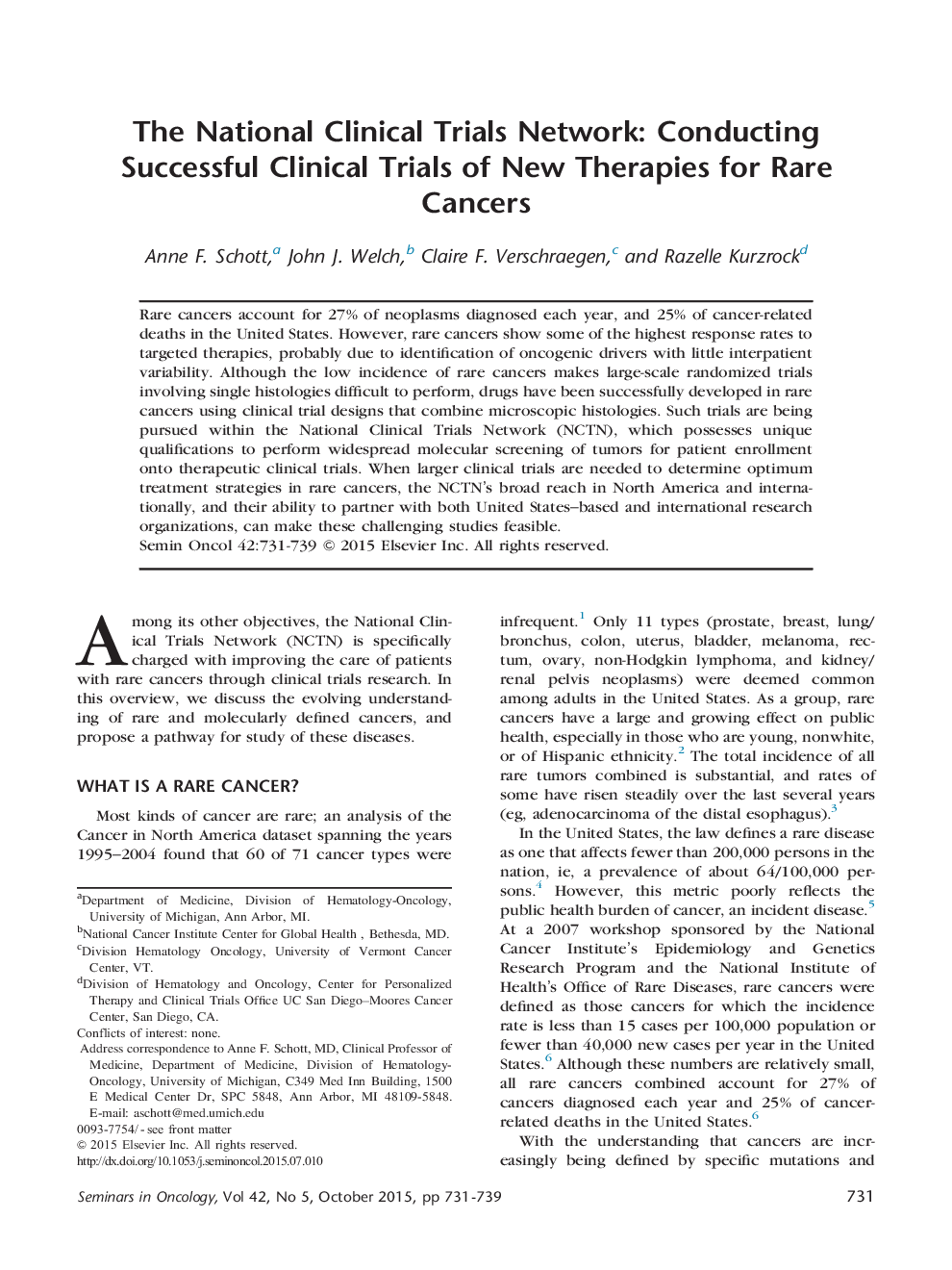| Article ID | Journal | Published Year | Pages | File Type |
|---|---|---|---|---|
| 2161807 | Seminars in Oncology | 2015 | 9 Pages |
Abstract
Rare cancers account for 27% of neoplasms diagnosed each year, and 25% of cancer-related deaths in the United States. However, rare cancers show some of the highest response rates to targeted therapies, probably due to identification of oncogenic drivers with little interpatient variability. Although the low incidence of rare cancers makes large-scale randomized trials involving single histologies difficult to perform, drugs have been successfully developed in rare cancers using clinical trial designs that combine microscopic histologies. Such trials are being pursued within the National Clinical Trials Network (NCTN), which possesses unique qualifications to perform widespread molecular screening of tumors for patient enrollment onto therapeutic clinical trials. When larger clinical trials are needed to determine optimum treatment strategies in rare cancers, the NCTN's broad reach in North America and internationally, and their ability to partner with both United States-based and international research organizations, can make these challenging studies feasible.
Related Topics
Life Sciences
Biochemistry, Genetics and Molecular Biology
Cancer Research
Authors
Anne F. Schott, John J. Welch, Claire F. Verschraegen, Razelle Kurzrock,
